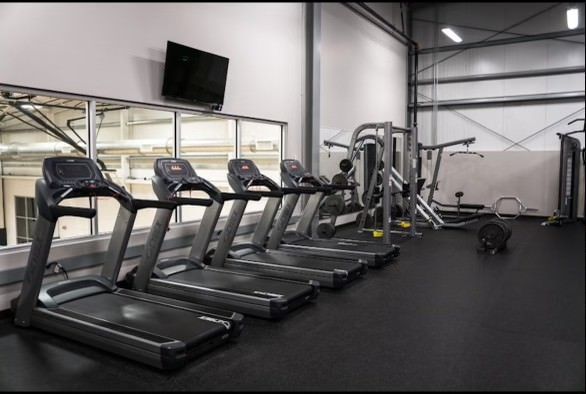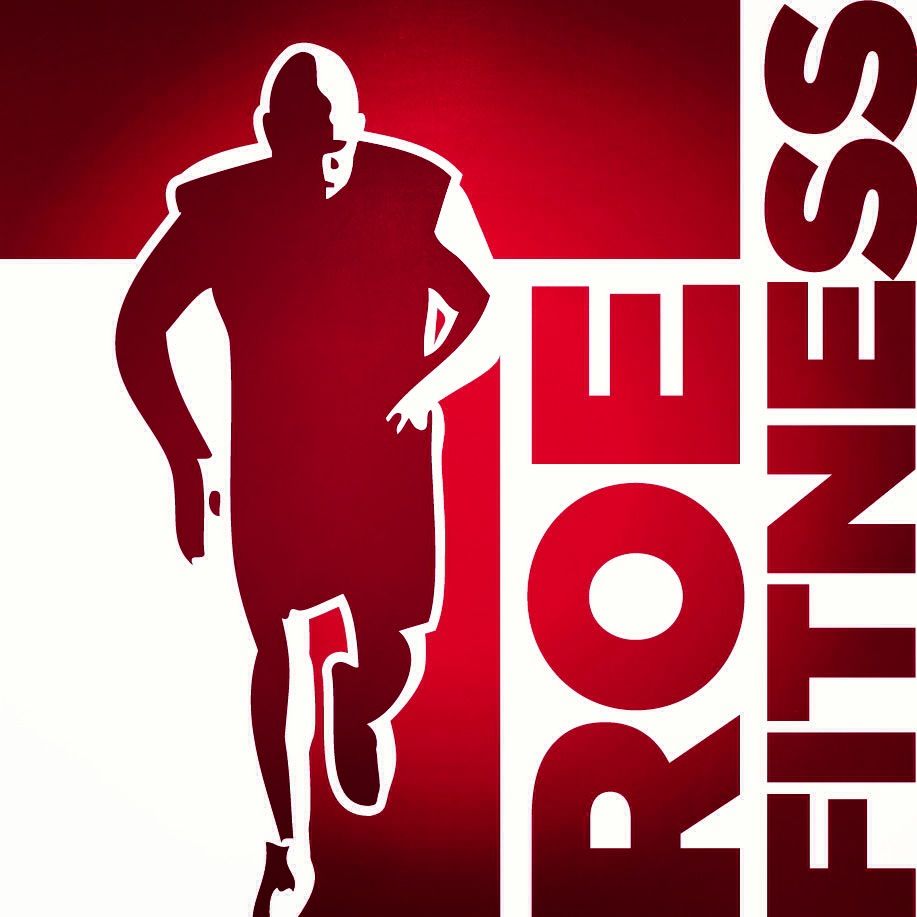How Can My Fitness Tracking Watch Help?
How Your Fitness Tracker Can Revolutionize Your Health and Wellness Journey

Fitness trackers have come a long way from simple pedometers that merely counted your steps. Today, these sophisticated wearable devices have evolved into powerful tools that can monitor a wide range of health metrics, providing valuable insights into your activity levels, sleep patterns, heart health, stress levels, and overall well-being. But are these wrist-worn wonders merely a trendy accessory, or can they truly help you achieve your health and fitness goals? Let's delve deep into the world of fitness trackers and explore how these technological marvels can empower you to take control of your health journey and unlock a healthier, happier you.
Activity Monitoring and Motivation
At their core, fitness trackers excel at monitoring your daily activity levels, providing a comprehensive picture of your physical exertion throughout the day. They meticulously track your steps, distance traveled, calories burned, and even your heart rate, painting a detailed portrait of your movement patterns and energy expenditure. This data can be incredibly motivating, encouraging you to stay active, set ambitious goals, and challenge yourself to reach new milestones. Seeing those numbers climb and those goals achieved can provide a sense of accomplishment and fuel your desire to keep moving, transforming exercise from a chore into a rewarding pursuit.
But fitness trackers go beyond simply counting steps. Many models offer advanced features like automatic workout detection, intelligently recognizing when you've engaged in a brisk walk, a strenuous run, or a challenging gym session. This automated tracking takes the guesswork out of logging your exercise and provides accurate data on your workout intensity and duration. Furthermore, GPS tracking allows you to map your routes, explore new trails, and track your progress with precision, adding an element of adventure and exploration to your fitness routine.
Some fitness trackers even offer personalized exercise recommendations based on your fitness level, goals, and preferences. They can suggest new workout routines, provide guidance on proper form, and even offer motivational tips to keep you engaged and on track. This personalized approach can be particularly helpful for those new to exercise or seeking to break through a fitness plateau.
And for those who enjoy a variety of activities, fitness trackers can track specific exercises like swimming, cycling, and yoga, providing detailed metrics and insights into your performance. Whether you're tracking your laps in the pool, monitoring your speed and distance on a bike ride, or measuring your heart rate during a yoga session, fitness trackers provide valuable data that can help you optimize your workouts and achieve your fitness goals.
Sleep
While we might intellectually acknowledge the importance of sleep, many of us underestimate its profound impact on our overall health and well-being. Sleep is not merely a period of inactivity; it's a vital time for our bodies and minds to repair, restore, and recharge. Fitness trackers can illuminate the often-overlooked realm of sleep, providing valuable insights into your sleep patterns and empowering you to prioritize restful nights.
By wearing a fitness tracker to bed, you can track your sleep duration, ensuring you're getting the recommended 7-9 hours of shut-eye each night. But it goes deeper than just measuring the quantity of your sleep. Many trackers can also monitor your sleep stages, distinguishing between light sleep, deep sleep, and REM sleep. Each stage plays a unique role in physical and mental restoration, and understanding your sleep architecture can help you identify potential imbalances or disruptions that may be affecting your sleep quality.
Some trackers even monitor your heart rate variability during sleep, providing further insights into your sleep quality and potential health issues. Lower heart rate variability during sleep can be an indicator of stress, poor sleep quality, or even underlying health conditions. By tracking this metric, you can gain a deeper understanding of your sleep patterns and take steps to improve your sleep hygiene, creating a relaxing bedtime routine, optimizing your sleep environment, and addressing any underlying health conditions that may be affecting your sleep.
A good night's sleep is not merely about feeling rested; it's a cornerstone of overall health and well-being. It boosts your energy levels, improves your mood, enhances your cognitive function, and strengthens your immune system. By prioritizing sleep and utilizing the insights provided by your fitness tracker, you can unlock the secrets of restful nights and reap the numerous benefits of quality sleep.
Heart Health
Your heart, the tireless engine that keeps your body running, deserves the utmost care and attention. Fitness trackers, with their advanced heart rate monitoring capabilities, provide a window into your cardiovascular system, allowing you to track your heart's rhythm, identify potential irregularities, and gain a deeper understanding of your cardiovascular health.
Many fitness trackers now come equipped with heart rate sensors that can continuously monitor your heart rate throughout the day and night. This provides valuable insights into your cardiovascular fitness, allowing you to track your resting heart rate, heart rate variability, and even detect irregular heart rhythms. A consistently high resting heart rate, for example, can be an indicator of stress, poor fitness, or underlying health conditions. By tracking this metric, you can gain a better understanding of your cardiovascular health and take steps to improve it through exercise, stress management, and healthy lifestyle choices.
Some advanced fitness trackers can even perform electrocardiograms (ECGs), providing a more detailed assessment of your heart's electrical activity. While not a substitute for professional medical evaluation, these ECG readings can detect irregularities in your heart rhythm, such as atrial fibrillation or premature ventricular contractions, which may warrant further investigation by a healthcare professional.
By monitoring your heart rate and utilizing the advanced features of your fitness tracker, you can gain a proactive understanding of your cardiovascular health, track your progress during workouts, and even identify potential heart health issues that may require further medical evaluation. This data can empower you to make informed decisions about your health and seek medical attention when necessary, potentially preventing serious health complications and improving your overall quality of life.
Stress Management
Stress is an inevitable part of modern life, but chronic stress can take a toll on your physical and mental health, contributing to a range of issues from anxiety and depression to heart disease and weakened immunity. Fitness trackers, with their ability to monitor physiological indicators of stress, can help you manage tension and cultivate a more balanced and resilient lifestyle.
One of the key metrics that fitness trackers use to assess stress is heart rate variability (HRV), a measure of the variation in time between heartbeats. Lower HRV is often associated with higher stress levels, while higher HRV indicates a more relaxed and balanced state. By tracking your HRV throughout the day, you can gain insights into your stress patterns and identify triggers that may be contributing to increased tension.
This awareness allows you to implement stress-reducing techniques, such as deep breathing exercises, meditation, or mindfulness practices, to promote relaxation and improve your overall well-being. Imagine your fitness tracker alerting you to a spike in stress levels during a particularly hectic workday. This timely notification can prompt you to take a break, practice deep breathing, or engage in a quick meditation session, helping you to regain control and navigate stressful situations with greater ease and resilience.
Furthermore, many fitness trackers offer guided relaxation exercises or mindfulness prompts, providing you with tools and resources to manage stress in the moment. They can also track your progress over time, allowing you to see the positive impact of your stress-reducing practices on your overall health and well-being.
Beyond the Basics: Fitness Trackers As Versatile Health Hubs
The evolution of fitness trackers has been nothing short of remarkable. What began as simple step counters have transformed into sophisticated health and wellness companions, offering a range of advanced features that can provide a more holistic picture of your well-being and empower you to take a proactive approach to your health.
Beyond tracking your steps and sleep, many fitness trackers now delve deeper into physiological metrics, offering insights into your respiratory health, body temperature, and even menstrual cycles. Some trackers can measure your blood oxygen saturation (SpO2) levels, providing a valuable window into your respiratory function and sleep quality. This can be particularly helpful for individuals with conditions like sleep apnea or asthma, allowing them to monitor their oxygen levels and identify potential issues that may warrant medical attention.
Skin temperature sensing is another emerging feature in the world of fitness trackers. By continuously monitoring your skin temperature, these devices can provide insights into your body's thermoregulation, its ability to maintain a stable internal temperature. Changes in skin temperature can also be an early indicator of illness or infection, prompting you to seek medical advice and potentially address health concerns before they escalate.
For women, fitness trackers are increasingly incorporating menstrual cycle tracking features. These features allow women to monitor their cycles, predict ovulation, and track symptoms, providing valuable insights into their reproductive health and empowering them to make informed decisions about family planning and healthcare.
For outdoor enthusiasts, fitness trackers with GPS capabilities offer a world of possibilities. These devices can map your routes, track your distance, and even provide navigation assistance, making them ideal companions for runners, cyclists, and hikers. Whether you're exploring new trails, training for a marathon, or simply enjoying a leisurely stroll in the park, GPS tracking can enhance your outdoor experience and provide valuable data on your performance and progress.
And for those who want to stay connected without being tethered to their smartphones, many fitness trackers offer smart notifications. These devices can display notifications for calls, texts, and app alerts, allowing you to stay informed without constantly checking your phone. This can be particularly helpful for those who need to stay connected for work or family reasons but also want to minimize distractions and maintain focus on their activities.
In essence, fitness trackers are evolving into versatile health hubs, providing a comprehensive overview of your well-being and empowering you to take a proactive approach to your health. By embracing these advanced features, you can gain a deeper understanding of your body, identify potential health concerns, and make informed decisions that support your overall health and wellness goals.
Choosing the Right Fitness Tracker
With a plethora of fitness trackers available, choosing the right one can seem like navigating a complex maze. But by considering your individual needs, fitness goals, and budget, you can find the perfect companion for your health journey.
Start by identifying the features that are most important to you. Do you prioritize heart rate monitoring, sleep tracking, GPS, or specific activity tracking? Different trackers offer different combinations of features, so choose one that aligns with your needs and preferences.
Comfort and style are also important considerations. You'll be wearing your fitness tracker for extended periods, so it's crucial to choose one that is comfortable and fits your personal style. Some trackers are sleek and minimalist, while others are more sporty and rugged. Consider your lifestyle and fashion preferences when choosing a tracker that you'll be happy to wear every day.
Battery life is another crucial factor to consider. Fitness trackers vary significantly in their battery life, with some lasting only a few days while others can go for weeks on a single charge. Think about how often you're willing to charge the device and choose a tracker with a battery life that suits your lifestyle.
Compatibility is also important. Ensure the tracker is compatible with your smartphone and other devices, allowing you to seamlessly sync your data and access all the features and functionalities of the tracker. Most trackers are compatible with both Android and iOS devices, but it's always a good idea to double-check compatibility before making a purchase.
Finally, consider your budget. Fitness trackers range in price from budget-friendly options to high-end models with advanced features. Set a budget and choose a tracker that offers the features you need at a price you can afford. Remember, the most expensive tracker isn't necessarily the best one for you. Focus on finding a tracker that meets your individual needs and provides value for your investment.
Empowering Your Health Journey
Fitness trackers have evolved from simple step counters to sophisticated health and wellness companions. They provide valuable insights into your activity levels, sleep patterns, heart health, stress levels, and overall well-being, empowering you to take control of your health journey and make informed decisions about your lifestyle.
Whether you're a seasoned athlete, a health-conscious individual, or simply looking to improve your overall health, a fitness tracker can be a valuable tool in your pursuit of a healthier, happier you. By tracking your progress, setting goals, and receiving personalized feedback, you can stay motivated, engaged, and on track to achieve your health and fitness aspirations.
So, embrace the power of technology, choose a fitness tracker that aligns with your needs and preferences, and embark on a transformative journey towards a healthier, more vibrant you. Your wrist-worn companion will be there every step of the way, providing guidance, support, and motivation as you unlock your full health potential.










